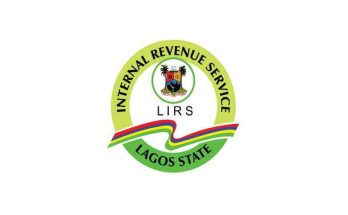A young Nigerian journalist named Ayodeji Bakare suggested to President Bola Ahmed Tinubu to turn the Naira into a commodity for monetary policy.
He also mentioned that the president should consider using cassava.
The commodification of the Nigerian Naira, especially in the context of Nigeria being primarily an oil-dependent nation, can have significant and wide-ranging effects on the daily lives of ordinary citizens, including those involved in or reliant on the cassava industry.
Here is how it affects citizens:
Inflation and Cost of Living:
When the Naira is turned into something that can be bought and sold, it can make everything cost more. This includes basic things like cassava-based foods like garri and fufu.
When these cassava products become more expensive, it can be tough for regular people to afford them. It puts extra pressure on their budgets and makes buying the food they need harder.
Income and Earnings:
If the Naira becomes worth a lot less, it can make people’s actual earnings and income worth less too. This really affects those who work in cassava farming and processing.
People working on farms and small cassava farms might need help to cover their expenses because their earnings are not worth as much in a situation where prices are rising quickly.
Food Security:
Cassava is a very important food in Nigeria, and if something goes wrong with how it’s sold or how much it costs, it can directly affect whether people have enough to eat.
If the Naira becomes a thing that can be bought and sold a lot, the prices of cassava products can go up and down a lot. This can lead to not having enough cassava food to eat and it can also make it more expensive.
For a lot of people in Nigeria, cassava foods are a big part of their diet. If these foods become too expensive or unavailable, they can affect their health and overall well-being.
Job creation:
If we make more businesses that work with cassava, like making cassava products, it can help create jobs. These jobs can be in rural areas where many people need work. This can be good because it can help more people have jobs and make their lives better.
Value addition:
When we turn cassava into things worth more, like cassava flour or chips, it makes it more valuable. This means businesses can make more money and have bigger profits.
Small Businesses and Entrepreneurs:
Because the Naira is being bought and sold like a product, it can make it hard for small businesses that work with cassava to do well.
The value of the Naira going up and down can make the things they need to make cassava products more expensive. It can also make it tricky to decide how much to charge for the cassava foods they sell.
People who run these businesses might need help to make sure they can still make money. And if they struggle, it could mean there are fewer jobs in the cassava industry for others.
Investment in Agricultural Infrastructure:
Nigeria has relied a lot on money from selling oil, which meant they didn’t invest enough in things like cassava farming and making cassava products.
If the Naira becomes weaker, some people might start investing more in farming and making cassava foods. But, it could also make the machines and equipment they need more expensive if they have to import them from other places. This might make it harder to make the cassava industry more modern and efficient.
Foreign Exchange Rates:
The exchange rate is like a price tag for things we buy from other countries. It can change how much it costs to bring in machines and chemicals for making cassava products in Nigeria. If the Naira becomes less valuable, these things can become more expensive, which can make it harder to produce and find cassava products.
Also, when the Naira is turned into a product that can be bought and sold, it can make it tough for the government to have enough money for important things like healthcare and education. This can indirectly affect the well-being of the people because they might not have access to the services they need.
Conclusion
In summary, the commodification of the Naira, coupled with Nigeria’s reliance on oil, can have profound effects on ordinary citizens, especially those involved in or dependent on the cassava industry.
It influences their purchasing power, income, and access to essential goods and services, ultimately impacting their quality of life and overall economic well-being. Therefore, achieving currency stability and diversifying the economy beyond oil remain important goals for the country’s sustainable development.








